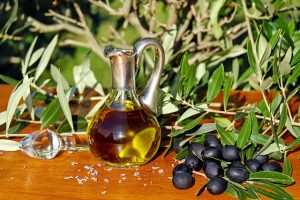Even before the occurrence of COVID-19 in 2020, the personal care market was already recognized as the leading revenue generator, and will continue to be so, up to 2031. Consumers of personal care products are largely interested in buying not only beautifying commodities but also basic hygiene and grooming items like soap, shampoos, toothpaste, moisturizer, shaving creams, lotion and many others. The rapid growth had stirred personal care product manufacturers to outdo each other in product development.
will continue to be so, up to 2031. Consumers of personal care products are largely interested in buying not only beautifying commodities but also basic hygiene and grooming items like soap, shampoos, toothpaste, moisturizer, shaving creams, lotion and many others. The rapid growth had stirred personal care product manufacturers to outdo each other in product development.
Which is Better, All-Natural or Organic Products
The most significant recognition in the personal care market is either as an all natural or organic product. Consumers before thought of the 100% all natural label as a good quality indicator. The revival of organic advocacy, which mainly began in Germany in the 1900s, was a movement in support of sustainable and natural methods of farming. The advocacy gave German consumers a better basis in choosing products.
 In later years, global organics advocacy groups were able to raise consumer awareness that there is an important distinction betweem the All Natural and the Organic product description.
In later years, global organics advocacy groups were able to raise consumer awareness that there is an important distinction betweem the All Natural and the Organic product description.
Advocates of organic commodities drew consumer attention to the fact that organic is better because there is an assurance that only safe and eco-friendly methods were used. Actually, organic products are more expensive because farmers, manufacturers and raw material suppliers have to follow strict regulations imposed by the Department of Agriculture, the Environmental Protection Agency and the Food and Drug Administratiom.
A FDA and DA certified product gives consumers full assurance that the product does not contain harmful or toxic ingredients and additives. Although the All Natural label suggests that only plant-based and naturally produced materials were used, the production method and other related processes used in their production are not subject to strict regulations. Generally, the All Natural label is associated with food and beverage products that have undergone minimal processing, and without artificial flavors, sweeteners or hormone-producing6^ additives.
Today, the personal care market has broadened because the industry now includes manufacturers of both organic and all natural formulas; not just for women but for men as well. Bar soaps, hair and skin-care formulas go beyond offering acne-free skin but also easing out dark spots and other expectations of keeping the skin smooth and supple.
Male consumers of personal care products are particularly interested in skin products that can provide anti-fatigue and age-preventing results. Yet they sometimes find it difficult to understand the consumer jargon when it comes to choosing or looking for a particular personal care cosmetic.
What we suggest is to use the information provided by the PersonalCare website, the go-to site for the latest and trendiest top personal care products, sustainable processes and environment-friendly initiatives.
